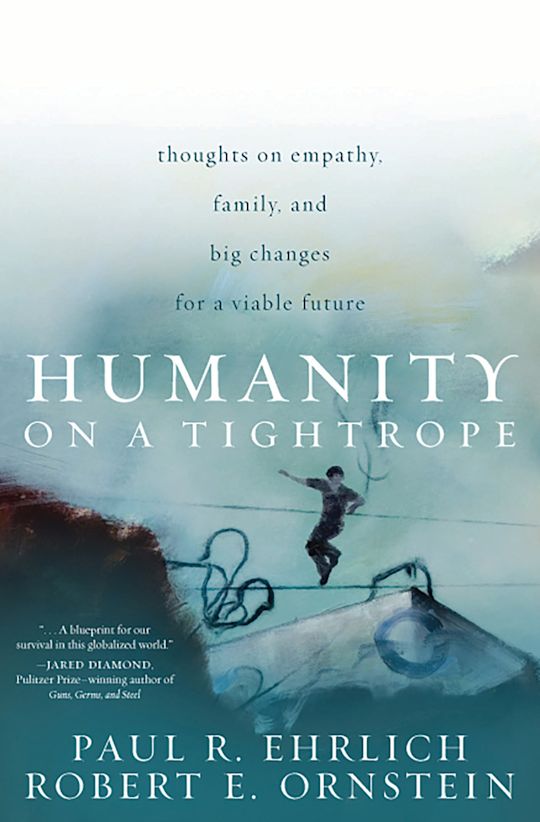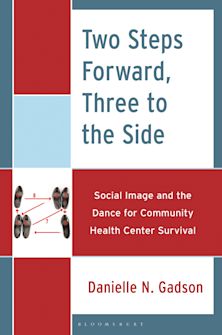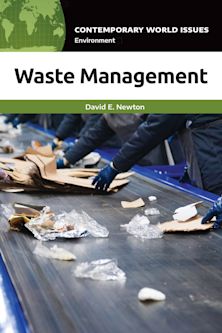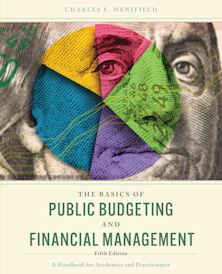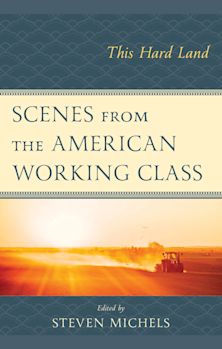- Home
- ACADEMIC
- Politics & International Relations
- Public Management, Administration and Policy
- Humanity on a Tightrope
Humanity on a Tightrope
Thoughts on Empathy, Family, and Big Changes for a Viable Future
Humanity on a Tightrope
Thoughts on Empathy, Family, and Big Changes for a Viable Future
You must sign in to add this item to your wishlist. Please sign in or create an account
Description
When we think of family, we most often think of our sisters and brothers, our cousins and grandparents, rather than our world family or even our community connections. We still identify with our differences more than our similarities, unless it's convenient to do otherwise. Here, two seasoned authors tackle the question of family and what it means to us now and how it might change to help us address the problems that affect us all. Using specific examples throughout the work, they present a unique approach to what it means to belong to one human family. Beginning with a consideration of how the family unit has begun to be defined by allegiances, by common ties and empathy, the authors then discuss the evolution of the family unit and how the "us" vs. "them" mentality gave way to a way of life that separated peoples rather than brought them together. They consider family values, how they arose, developed, were perverted or perfected to suit the family unit's needs, and the confusion that followed. Humanity on a Tightrope focuses on what families and family values are, and how they often create an "us versus them" mentality that is at the root of many of today's most crucial problems from terrorism, racism, and war to the failure of humanity to come to grips with potentially lethal global environmental problems. The book underlines a basic element for solving the human predicament - quickly spreading the domain of empathy. It takes a close look at how we can do that, building on the findings of both social and natural science and using tools ranging from brain imaging to the internet. It explains how civilization is unlikely to persist unless many more people learn to put themselves in the shoes of others to keep society balancing on the tightrope to sustainability - a tightrope suspended over the collapse of civilization.
Table of Contents
2 Chapter 1 On a Tightrope
3 Chapter 2 Empathy, And "Us" Family Members versus "Them"
4 Chapter 3 The Seeds Of Family Values And How They Sprouted
5 Chapter 4 The Evolution of "Them"
6 Section 2 Changing Our Mind and Changing the World we Made
7 Chapter 5 The Neuropsychology Of Getting To "Us": The More Alike The More We Like
8 Chapter 6 It's All Us Now: Closing the Culture Gap and Building a Global Family
9 Chapter 7: The Beginnings of a New Stage in History
10 Chapter 8 Getting To "Alike" One Another
11 Chapter 9 Revitalizing Religious Empathy and Staying on the Tightrope
12 Appendix Going Further: Reading, Informing, Acting
13 Bibliography
14 Acknowledgments
Product details
| Published | Dec 16 2010 |
|---|---|
| Format | Ebook (Epub & Mobi) |
| Edition | 1st |
| Extent | 210 |
| ISBN | 9781442206502 |
| Imprint | Rowman & Littlefield Publishers |
| Publisher | Bloomsbury Publishing |
About the contributors
Reviews
-
Humanity is balancing on a tightrope, according to Stanford biologist Ehrlich and psychologist Ornstein, because of environmental deterioration, overpopulation, poverty and pandemics, and the threat of nuclear war. The barrier to remedies for these complex problems is our lack of empathy and inability to see "other" people as "us," part of the same human family. These problems could be dealt with by changes in human behavior and by adopting policies that take us toward a sustainable and equitable society. The authors argue that we should expand our consciousness to be more inclusive not only of the rest of humanity's needs and plights, but also of those of our grandchildren and beyond. Ehrlich and Ornstein present a wealth of evidence from biology, brain science, anthropology, and psychology, and advocate the necessity of building an empathetic, sustainable, and fair world. Further, they emphasize the need to educate people about the essential similarity of all people through reorganization of school and university courses, and by revitalizing mass media and religion to enhance human empathy and create a real global family. This stimulating book should be required reading at all levels. Summing Up: Essential. All levels/libraries.
Choice Reviews
-
Ehrlich, the author of numerous influential environmental books, and award-winning psychologist Ornstein address the need for empathy to maintain the health of civilization. While drawing on a long line of psychological experiments to show the inherent development of family ties and persistent 'us vs. them' mentality in human society, the authors also examine the development of the perfect Leave It To Beaver family stereotype and its enduring impact that has extended far beyond pop culture. A focus on family values that never actually existed, this has created a myth that justifies the concept of a different 'them' that thwarts attempts at transcending differences. With stark examples such as Rwanda to serve as warnings, Ehrlich and Ornstein segue into chapters on 'building the global family.' While political watchers may find it impossible to believe we could ever see beyond the smallest of differences, the authors remain hopeful and offer plenty of evidence that change will come, simply because the twenty-first century requires it. Thoughtful and sincere, this is a solid evidentiary presentation of an all-too-often emotional topic.
Booklist
-
A rich book that delves into the root of the world's most pressing problems: the lack of empathy in mankind. The whole book revolves around this central idea of how we human beings as a whole global family should develop more empathy toward each other to ensure a sustainable future....Ehrlich and Ornstein expose readers to some mind-blowing aspects of cultures in the hidden corners of the world....With a smart pun of humanity teetering on the tightrope just as the tightrope performer, Ehrlich and Ornstein showcase their beliefs in the super-power of empathy – that it can save humanity and save the world we live in.
The Stanford Daily
-
The authors' hearts are in the right place with this earnest plea to all mankind to develop empathy and embrace the interdependency that connects us all. Ehrlich (The Population Bomb) and Ornstein (The Healing Brain) argue that human behavior is the biggest threat to our collective future and strongly suggest we create less "us" vs. "them" binaries. From environmental conservation to ending consumerism to the pervasive ignorance that feeds xenophobia, they approach their focus through the lenses of anthropology, neuropsychology, and history.
Publishers Weekly
-
With their intriguing analogy of the tightrope walker, authors Ehrlich and Ornstein draw readers into their compelling argument for redefining our notions of family and community. That walker, the authors say, is the human race, the rope the many global crises confronting us, and that perilous journey our own progress towards an uncertain future. And what the world sorely needs to navigate that perilous rope is empathy, specifically that of its more privileged nations.
Bookpleasures.com
-
Humanity on a Tightrope reads like an engaging after-dinner conversation between two old friends. Ehrlich tackles global issues with the ease and sometimes bluster of someone who has been on a soapbox for more than four decades. Ornstein brings insights from psychology.
Journal Gazette









